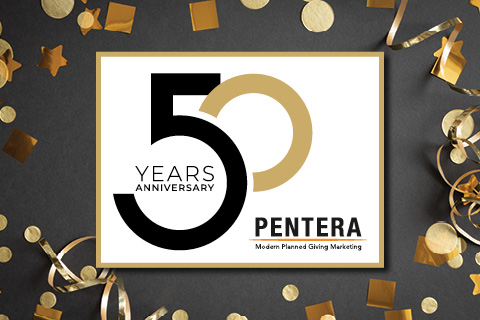
The Pentera Blog
When Soliciting Bequests, Should You Focus on Mission or Achievements?
When soliciting bequests, it is more effective to focus on your nonprofit's mission than to report specific achievements. That is the conclusion of a recent study that exhaustively reviews research on nonprofit fundraising.
Everything Research Can Tell Us About Legacy Giving in 2018 was recently published by professors at the University of Plymouth in England - including Adrian Sargeant, who has been doing planned giving research for many years on both sides of the Atlantic. The 52-page report analyzes dozens of research studies from the U.S. and elsewhere that go back decades, drawing conclusions about legacy giving from the combined results.
"Giving in the present can be bolstered by focusing on the organization and the help it is providing now to beneficiaries," the authors state. "For bequests, the organization should give consideration to illustrating why the work of the organization is of broader social significance." The report advised that "nonprofits should think through their long-term mission" because appeals for bequests "need to articulate a longer-term and more coherent plan."
Hospice as an example
The report uses hospice as an example of how to use concrete information when soliciting present gifts and how to use abstract information when soliciting legacy gifts. For a present gift, "talking to donors about the medications, the number of beds, the number of nurses, would all be appropriate." For a bequest, the hospice would focus on its mission, using "messages stressing the organization's ability to improve the quality of the end-of-life experience and the support provided for families."
"Rather than talk about the immediate benefits of patient care per se, the benefit to the local community and the wider society should be emphasized," the report states.
Use donor stories to create the ideal
The report also suggests wording donor stories in a way that helps prospective donors focus on an ideal version of themselves - "who they would like to be (rather) than who they are." Suggested phrases include:
- Caring donors like you ...
- Elsie's generous gift has helped us to ...
- Through the kind support of donors like ...
The study concludes that "this approach would be particularly effective with female donors, who are the critical bequest audience."
Focus on the positive rather than on preventing the negative
The section of the report on language concludes by suggesting that "when thinking about the future, messages about well-being tend to work better than messages about the prevention of suffering."
"Organizations working in the field of international aid, for example, would therefore be advised to focus on the positive difference their work has made and will make in communities around the world. This approach will be more effective at soliciting bequests than messages emphasizing how people will suffer if the gift isn't forthcoming."
The complete study can be downloaded for free at http://legacyvoice.co.uk/legacy-giving-research/


